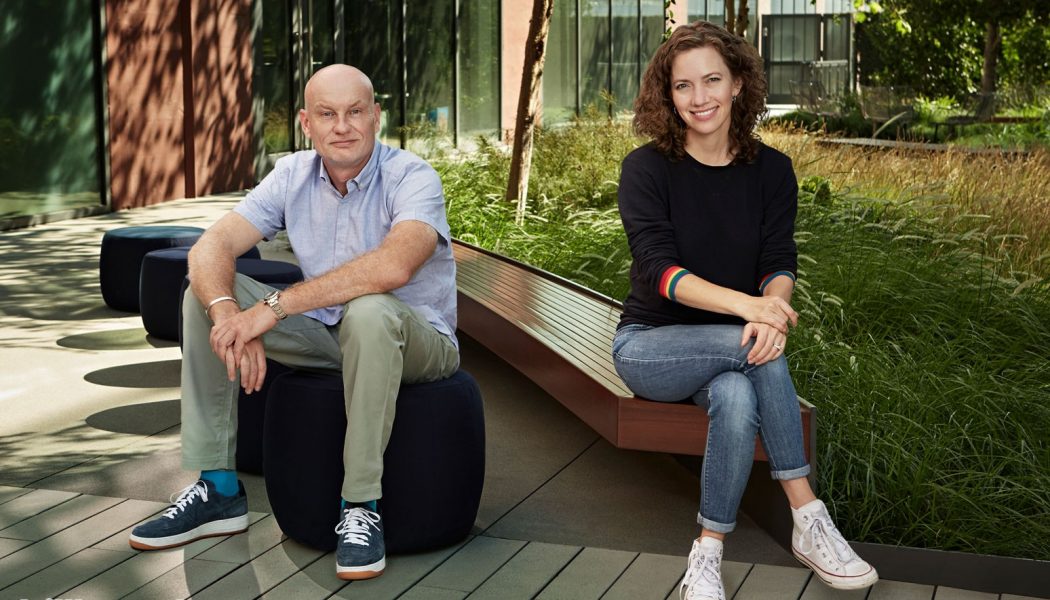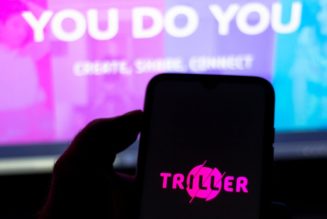
Moot is a London native who spent a decade at EMI Music Publishing before helping lead its merger with Sony/ATV, where he rose to president of worldwide creative before coming to Warner. Marshall hails from Los Angeles and spent 12 years helping to establish the independent powerhouse SONGS Music Publishing before its 2017 sale to Kobalt. Together, Warner Chappell has two executives with extensive backgrounds on the creative side of the business. So far, they’ve already applied those talents toward big-name signings (Frank Ocean, Thomas Rhett, the Quincy Jones catalog, the Pop Smoke estate); a revamped creative suite with a new department dedicated to creative services; a more prioritized global hierarchy, including new global heads of administration, international A&R and synchronization; and new offices in Asia, including Shanghai.
“A lot of the writers that have chosen to sign to us, or catalogs that have come here, is because these folks are interested in a suite of services,” says Marshall. “They’re interested in that international collaboration; they care about being connected.”
So far during the pandemic, business is still booming: Warner Music Group’s publishing revenue is expected to grow between 0.3% and 3.4% in 2020, to between $645 million and $665 million, according to an advance preview of WMG’s financials that the company disclosed as part of a $250 million debt offering announced in October. And though Warner Chappell has remained steady at No. 4 on Billboard’s Publishers Quarterly rankings — behind Sony/ATV, Universal Music Publishing Group and Kobalt, in terms of market share — Moot and Marshall are optimistic that signing the right creators and making the right deals will pay off down the line.
“Market share comes — it’s the byproduct of doing things right,” says Moot. “So we’re going with our hearts, and most importantly our ears, and signing exciting, culturally relevant, important music. But then we’re going to offer our writers a suite of services that will see them monetize their career in the modern world of publishing, where the uses and licenses and outlets for their songs becomes ever more greater, fractured and diverse.”
What do you guys look for in signing acts and in acquiring catalogs?
Guy Moot: I don’t want us to be looking at every deal just because it’s in the market – we want to pick the winners, be selective [but] aggressive in how we close those deals. As much as we use analytics and data, I encourage all of our teams just to go with their gut a little bit more. We want to underpin what we’re doing internationally. And in terms of the catalogs, we’re also looking at individual songs as well; it’s not just about the big catalogs. I encourage people to think about it almost like they’re record collecting — go and find those songs because you’re passionate about them.
Carianne Marshall: We need to be curious. We need to make sure that we are listening to our songwriters, but also the people that work within our company. We want them to have voices, too. A great idea can come from anywhere, and we’ve seen that happen. The more we collaborate, the more we talk to one another, the better and deeper we can build our catalog, and the better our services become, too. We just launched a partnership with Stride Health, which is an online portal that helps our songwriters find healthcare plans at affordable prices, because one of the things we had heard from our writers in the U.S. is that it was kind of a shit show trying to find insurance, and that was really tough to navigate. This portal searches through all the Affordable Care Act health insurance plans and creates a list of some of the best coverage options from the demographic info. If there’s anything we can do to help our songwriters, it’s going to help them focus more on creating great songs.
Why are creators like Quincy Jones choosing you to work their catalogs?
Marshall: We can drive value for a lot of these catalogs by not just continuing to take good care of the big copyrights but also doing a deep dive. For the first time, we have a global head of synchronization, which is really important: We want to work with anyone who wants to use our songs to try to figure out how to create solutions for them. It’s important to us to be able to search our catalog to find something in every genre and at every price point with a quick turnaround. We’re building a new system that helps us do that. Right now, since the Quincy Jones catalog is new again to us [Jones was previously signed with Warner Chappell from 1987 to 2006], we’re focusing on highlighting some of those hidden gems, creating covers and other creative approaches to present songs in a different way, to make sure we’re not just looking at the typical opportunities. A good song can be cut by almost anybody and still be fabulous. That’s the heart of it. A bunch of our holiday songs we had covered by a female mariachi band, and we publish their original music as well. There’s all sorts of areas to explore.
What are the growth areas for publishing?
Moot: A lot of these services, like TikTok or Peloton, would be nothing without music — all these things we find really exciting. What we really hope is that some of these new sources of revenue — we’re particularly focused on livestreaming, for example, which we think has huge potential — when the more traditional world of live touring, bars and clubs comes back, it’s just going to be continued upside.
Marshall: We can expand our reach in traditional digital media, too, because media is so fractured and there are so many more places to put your song. We just need to make sure that we’re responding as the business changes. And I think what’s important to us as well is that it’s not just about the top songs — it’s about all the songs, but it’s also about production music. If it’s somebody like a Peloton or a new television channel, we can provide a service at every level.
Why was international such a big priority, and what’s your strategy for it?
Moot: Good songs can come from anywhere. There will be international writers and producers coming out of Asia, and we’re already seeing it in Europe. We also need to offer services to local writers in those markets, as well as those who have international ambitions. We’re underpinning this with ARROW, our song-pitching search engine, where all of our songs can be found and licensed wherever in the world. You have to look at this as within a global economy — music doesn’t do borders and territories — and in terms of emerging markets. We’ve invested a lot in Asian repertoire, which underpins the licensing of local [digital service providers] there. We’ve opened an office in Shanghai because that’s where a lot of the licensing comes from. But we’re looking everywhere. I was talking about the Caribbean recently, about how we’ve got to look at supporting the local collection societies down there.
With the Mechanical Licensing Collective launching in January, how will the unmatched revenue that becomes available be allocated to songwriters?
Marshall: The Music Modernization Act showed that the entire industry could come together to compromise and build solutions to real problems faced by songwriters. But it’s also a work in progress to figure out how to live harmoniously with all these new services that are coming. So it’s probably better to see six months from now how it’s working. But we’re hopeful.
Independent companies like Hipgnosis and Primary Wave have been buying song catalogs for prices based on multiples of annual revenue that are very high, compared with what the industry has seen before. Is that driving up prices in general?
Moot: I’ve spent most of my publishing career advising songwriters never to sell their catalog. It’s the crown jewels — your retirement plan. But multiples are going so high, I can’t blame writers for wanting to sell. I think the writers are happy about it, I think the managers and attorneys are happy about it, and as far as the investors — well, that’s their view of how those multiples support a deal. It reaffirms people’s confidence in the publishing business and our own value and worth, if you like. But I use the analogy of how you can buy a garden, but you also have to maintain it and grow it, and publishers maintain and grow those songs.
Right now, money is cheap and multiples are high. We’ll see where this goes. But if these fund guys go off and invest their money in cement or natural resources or whatever the next safe haven or growth area is, who will look after these synch licenses that come in? In a streaming world, you have to fight to be heard. You have to be really creative with how you keep songs alive. And, no disrespect, that’s not what fund managers do — that’s what publishers do.
This article originally appeared in the Nov. 7, 2020 issue of Billboard.










